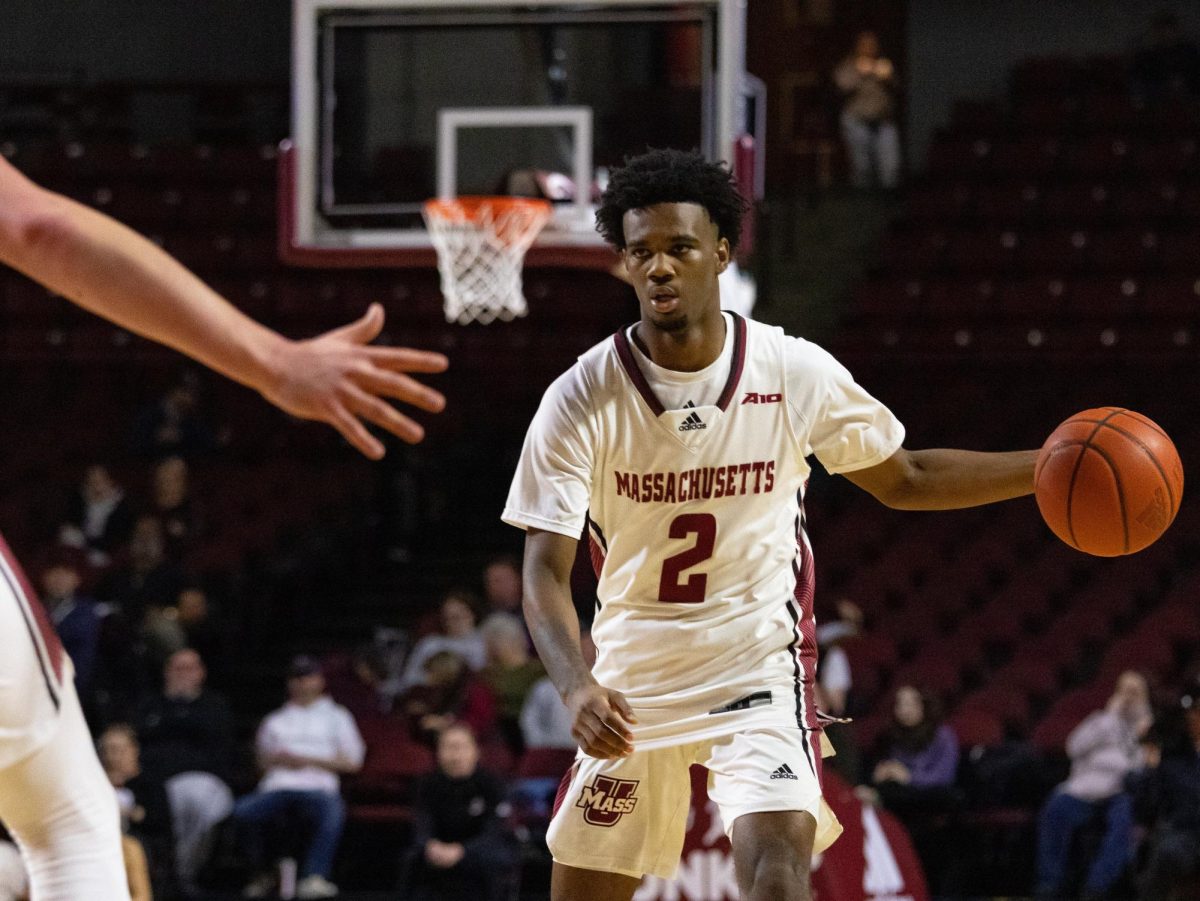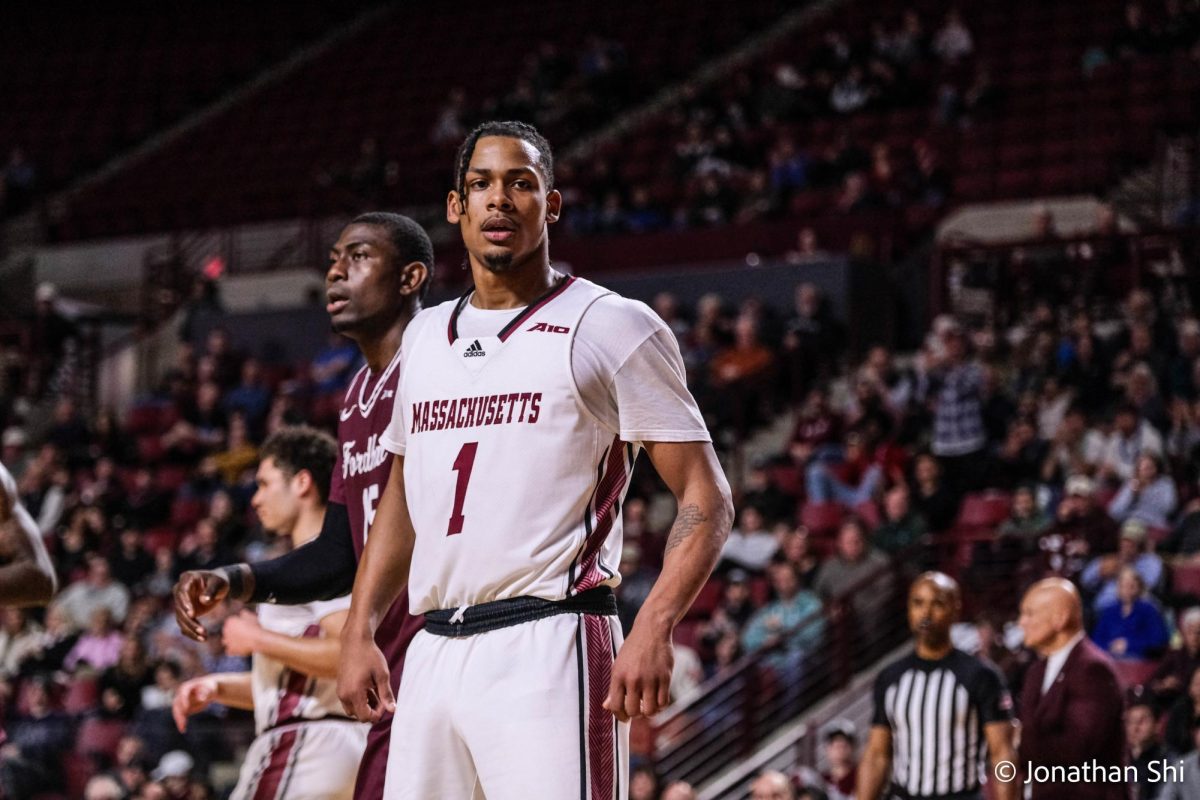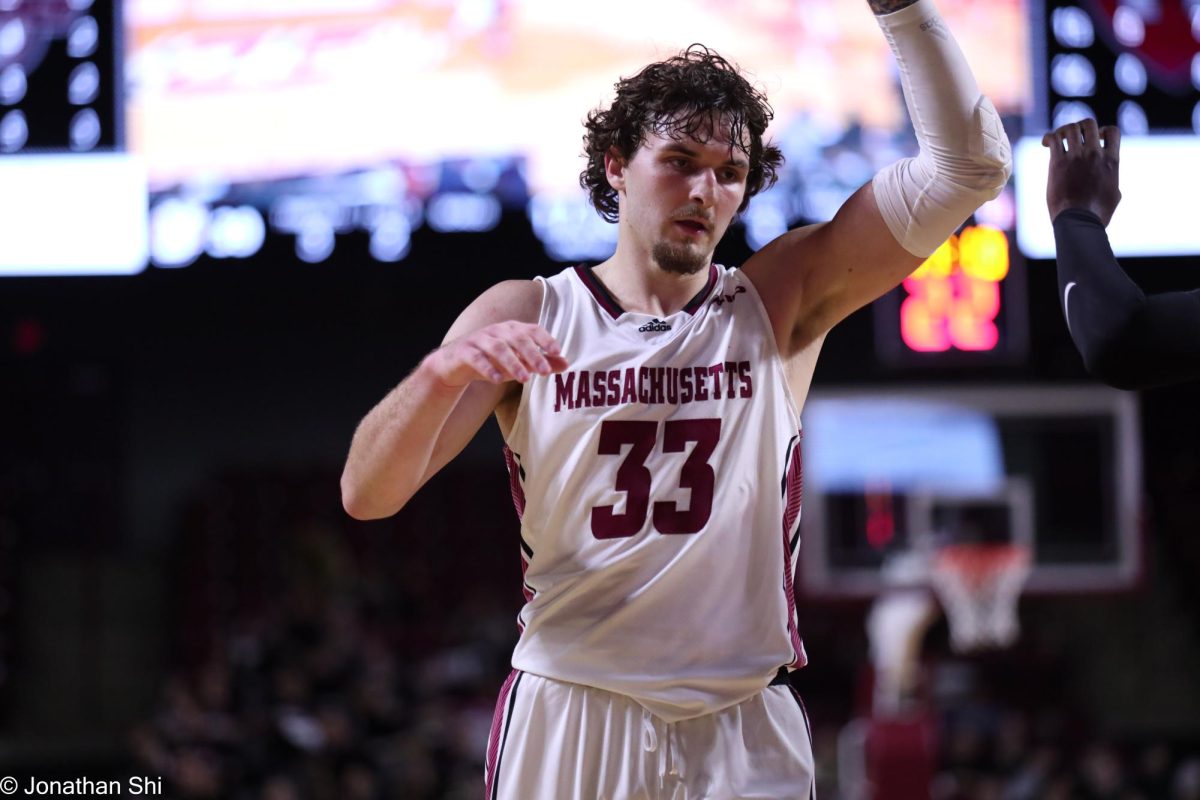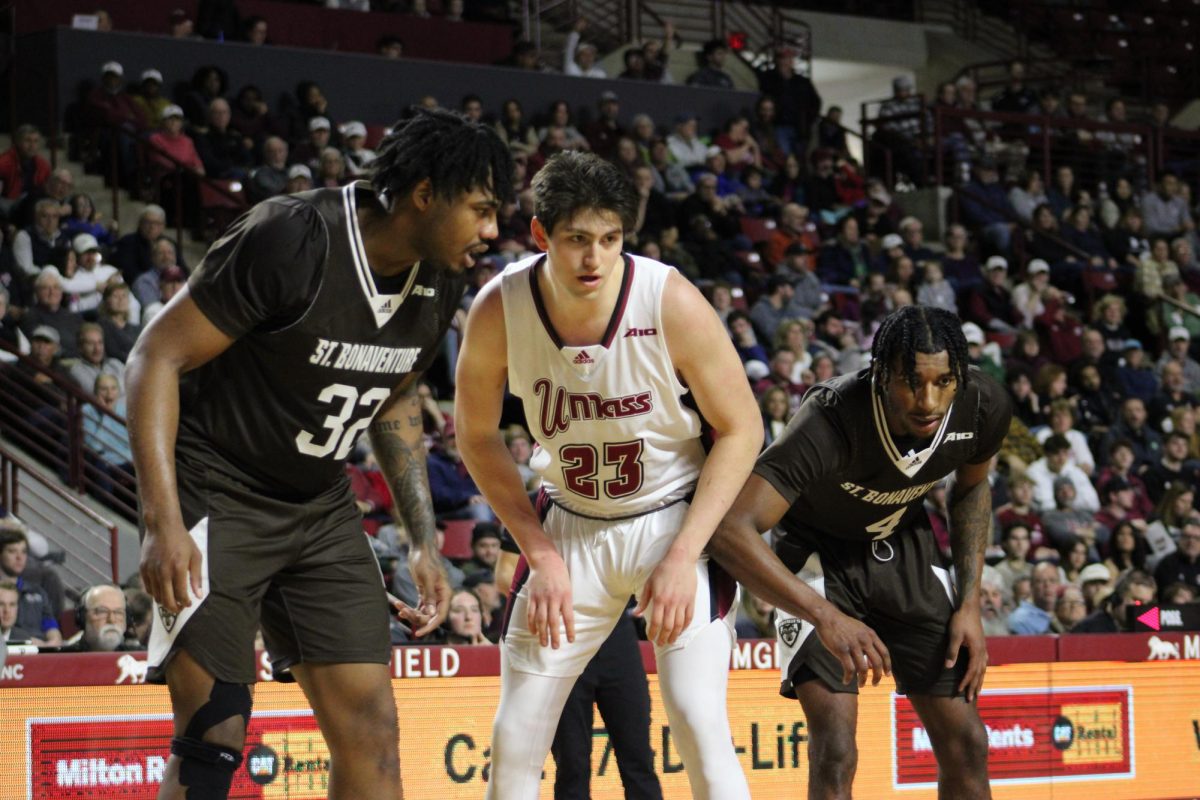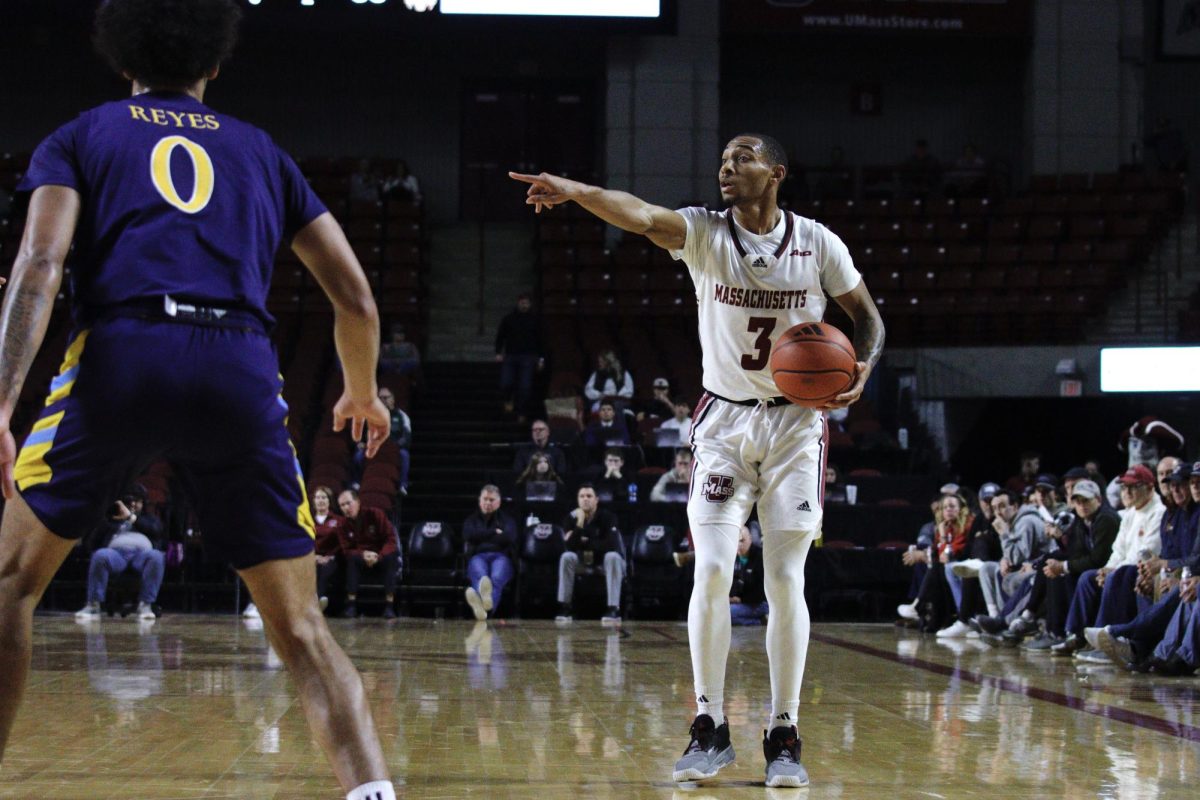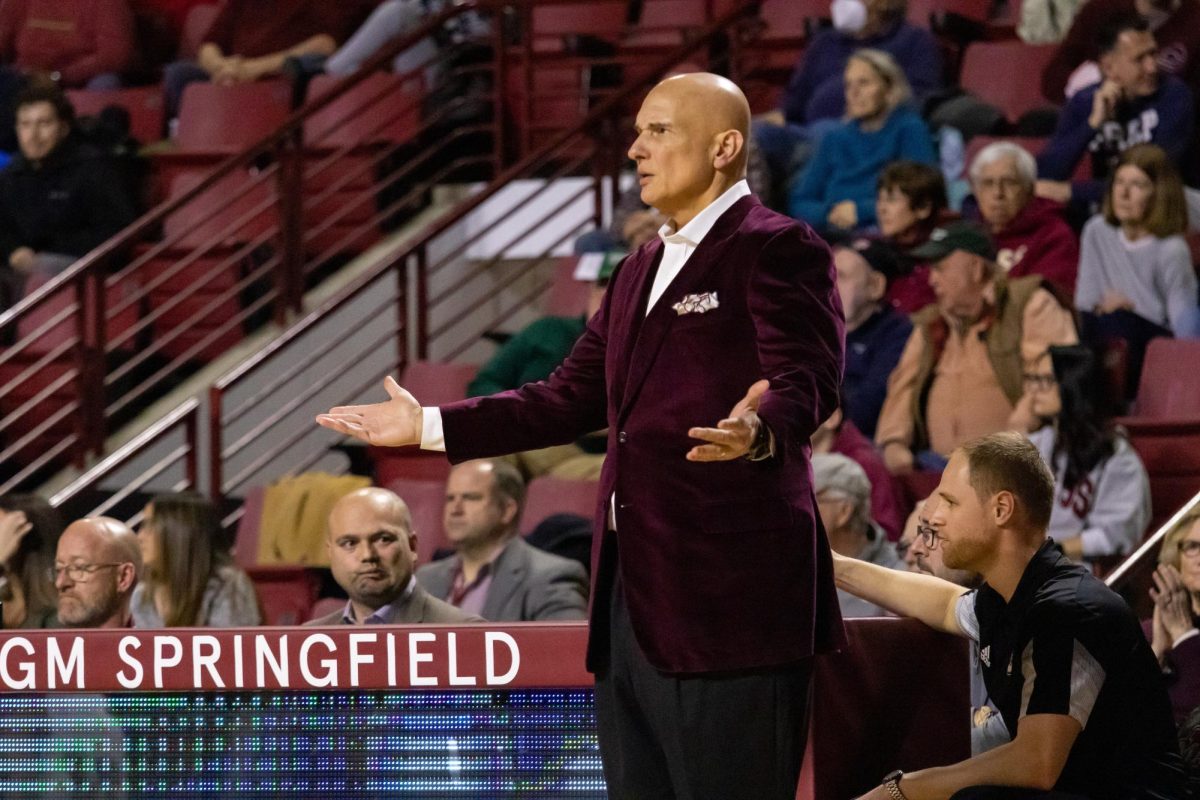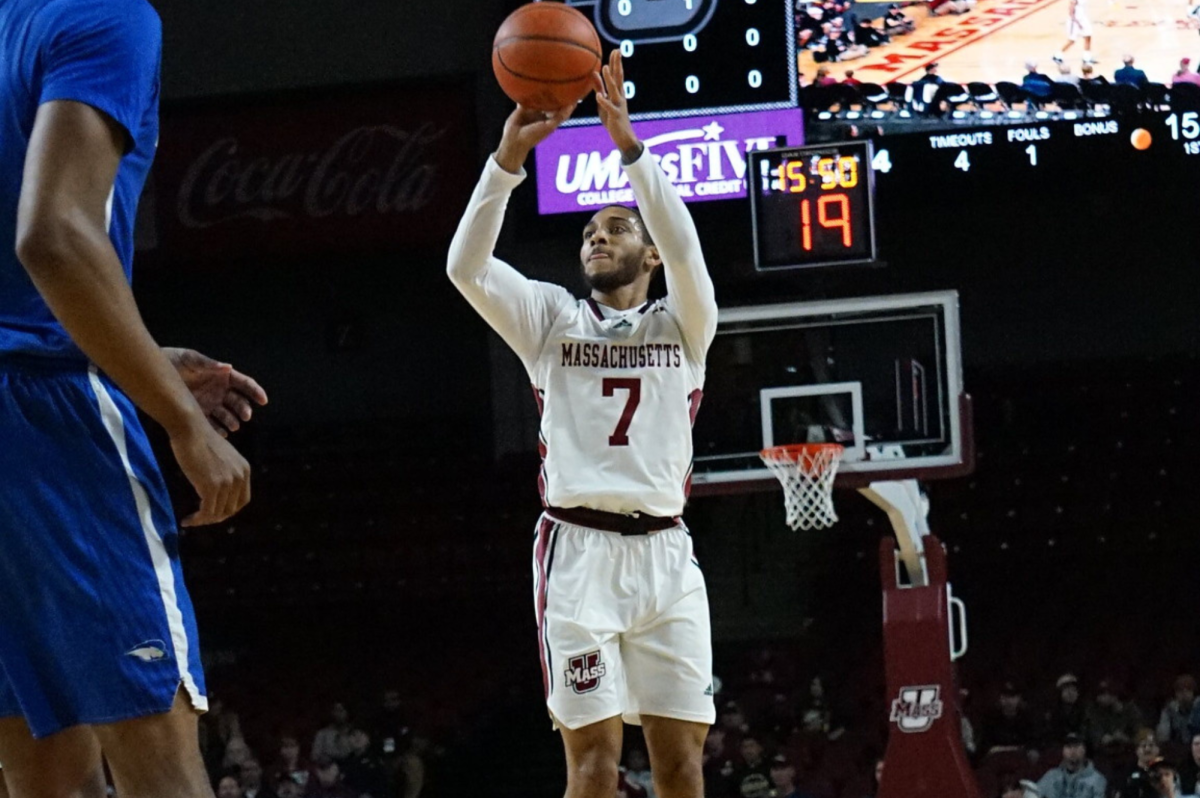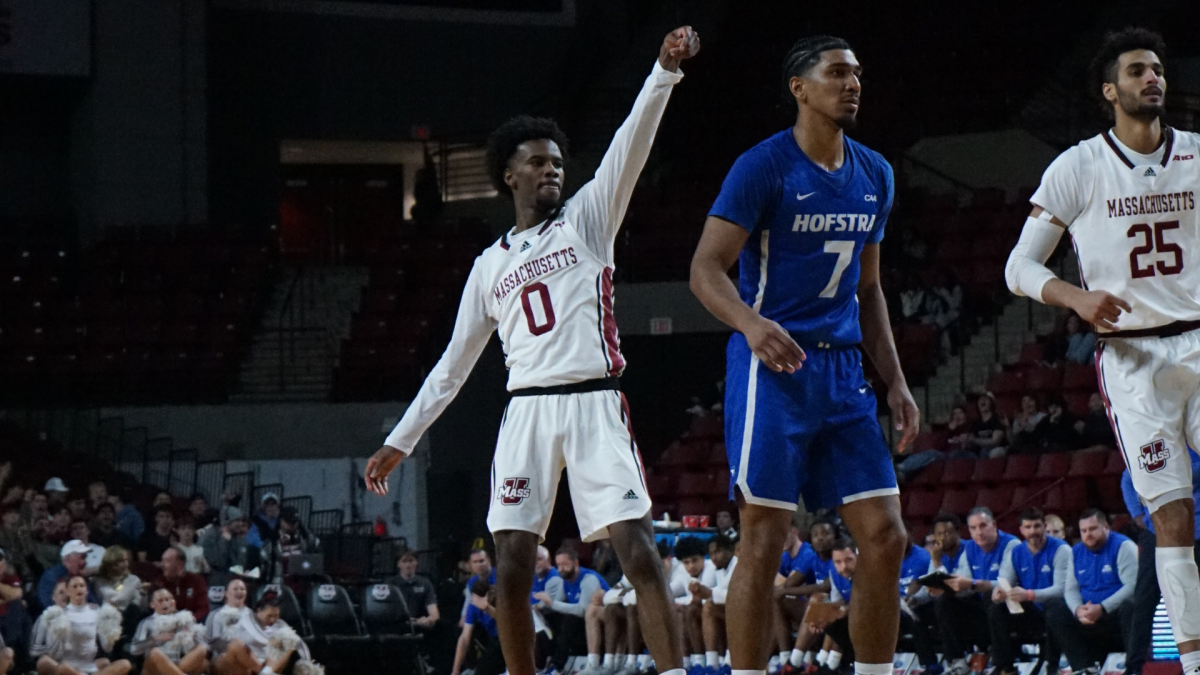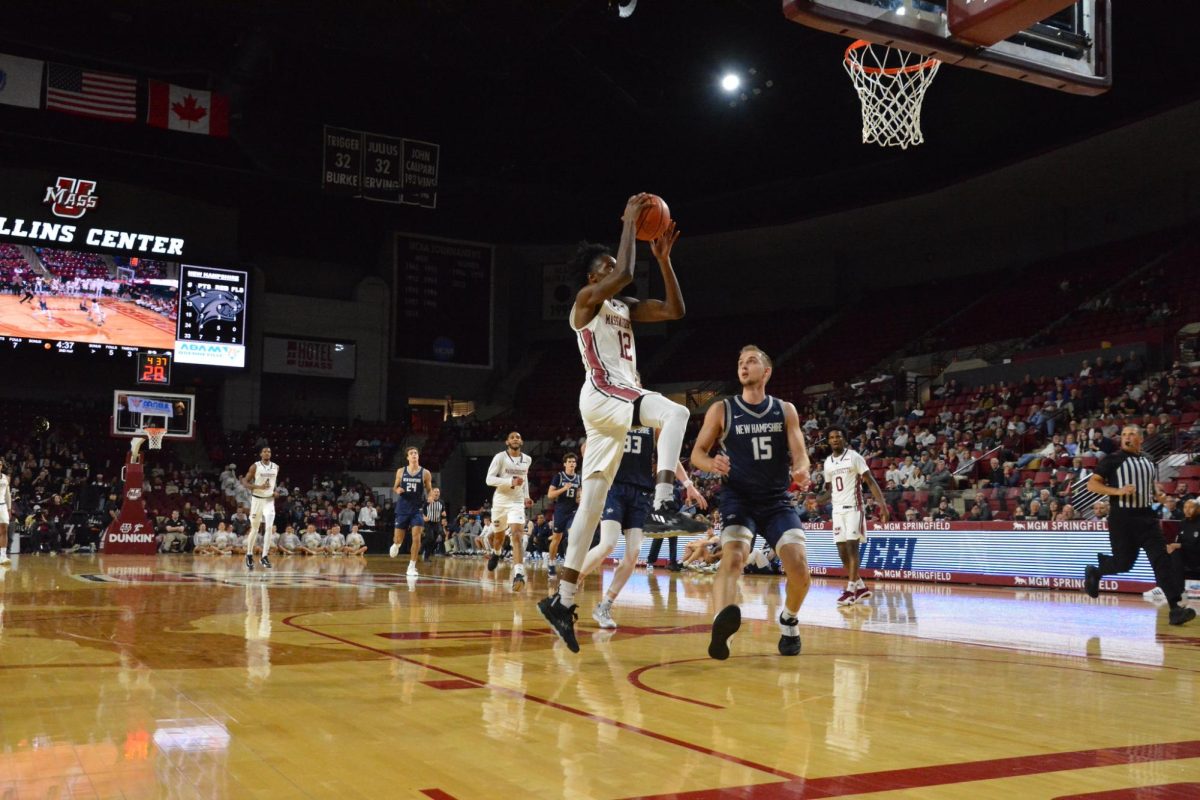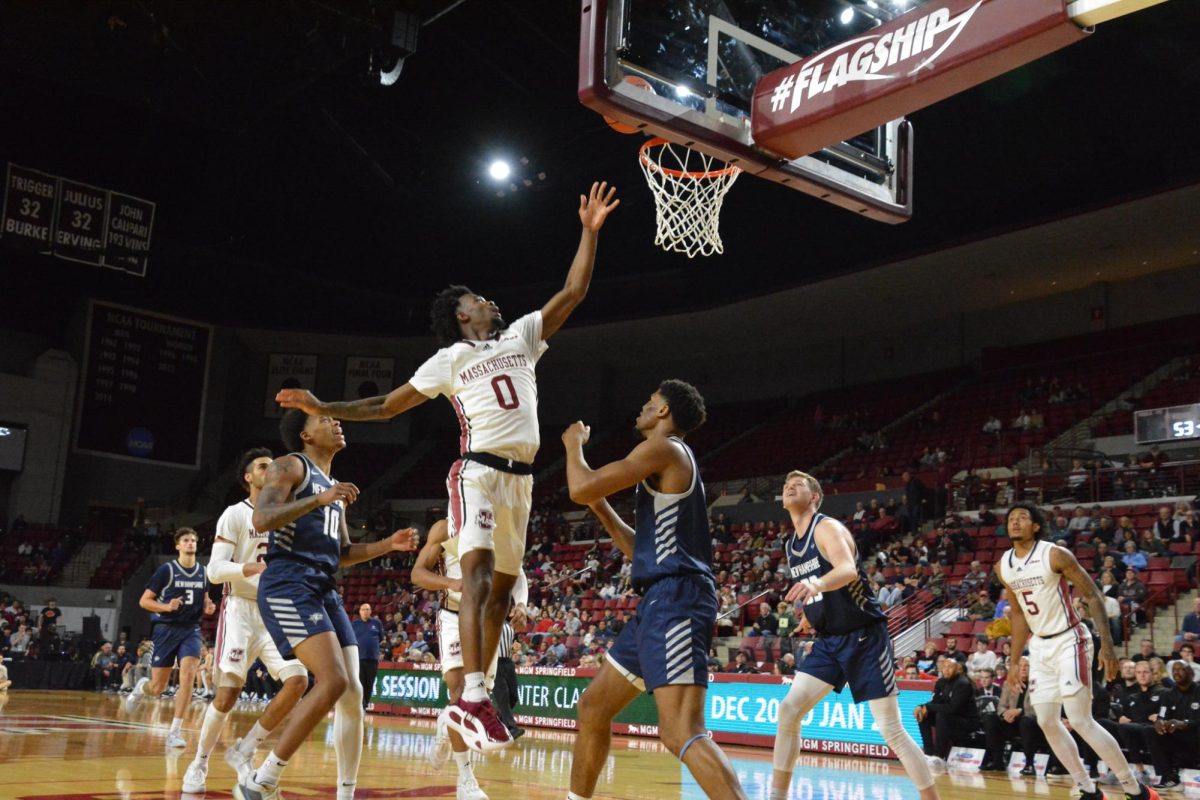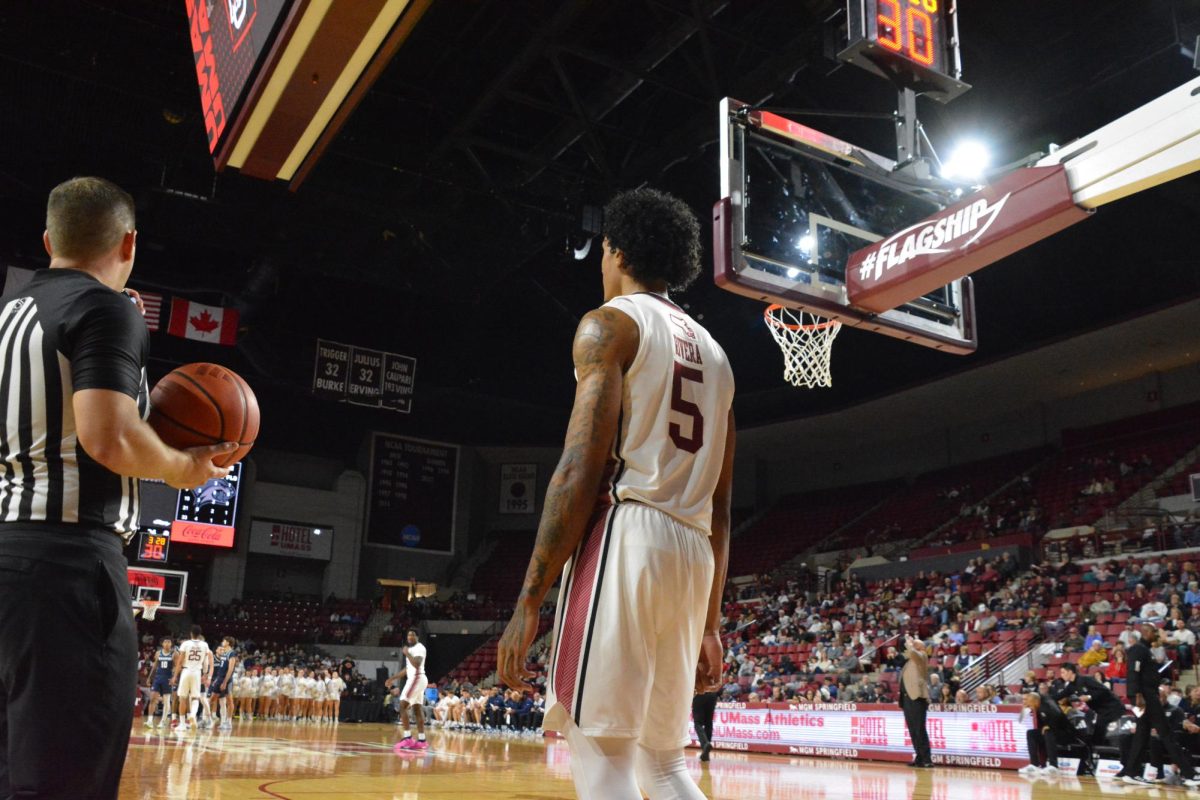
As Massachusetts men’s basketball point guard Chaz Williams tried to pinpoint the core of the Minutemen’s recurring struggles coming out of halftime, he shook his head in uncertainty.
He couldn’t place all the blame on the effort of the team, but refrained from saying it’s simply a matter of execution.
The best he could do was split the blame right down the middle.
“I’m not saying it’s as much effort because guys give effort all throughout the game,” Williams said, “but I guess it’s a place and point we reach or a lackadaisical point we reach and that kind of holds us back.”
Regardless of the answer, Williams and company said something has to be done to combat UMass’ recent sluggish play at the start of the second half.
In four of the last five games, the Minutemen (12-5, 2-2 Atlantic 10) have either watched their double-digit halftime leads evaporate or allowed deficits to become compounded to moments where the team takes heroic and panicking runs to try to scrap out another victory.
The most recent case came Saturday afternoon when a seven-point halftime deficit quickly spiraled out of control as George Washington reeled off a 14-3 pounding over the first five minutes, one second of the second half.
UMass nearly dug itself out of a 16-point hole, but playing catch-up for the entire second half proved to be too much as the Minutemen lost, 79-76.
UMass coach Derek Kellogg has had six days to contemplate how to solve the issue, but said there isn’t a complicated theory to answer the problem.
“The theory is you have to play harder,” he said. “You gotta play tougher and be meaner.”
Kellogg spent Wednesday’s practice watching from the stands of the Mullins Center instead of on the court. He wanted to gauge his team’s intensity from a distance rather than up close.
He was happy with what he saw, as the Minutemen got into each other’s faces, especially on the defensive end, which has been lacking coming out of halftime.
“Hopefully yesterday’s practice was an indication of how it’s supposed to be, like get up under somebody’s chin and don’t let them do what they want to do,” Kellogg said. “Defense is not letting somebody do what they want to do, and if they’re able to, then we’re not as good as I’d like us to be.”
UMass showed signs of that poor defense in its win over Duquesne on Jan. 17, when a 14-point halftime lead was coughed up thanks to the Dukes’ 16-5 spurt in the first 4:10 of the second frame to shrink the deficit to five and throw the Minutemen into another close affair.
At Fordham on Jan. 13, UMass’ 14-point halftime edge dwindled down to five with 8:01 left to play, and it’s 13-point halftime lead against Eastern Michigan on Jan. 5 shrunk down to four thanks to a 15-6 run by the Eagles in the first 4:26 of the second half. The Minutemen managed to hold onto both of those games, however.
Williams, who’s considered to be one of the team leaders on and off the court, said Kellogg and some of the players try to motivate the team in the locker room to bring out a sense of urgency and avoid lapses in the second half.
Despite those efforts, the problem still lingers around the team at a critical time with conference play well under way.
Williams said this week’s practices have helped address that issue by simulating game-like situations.
“As of late, we’ve just been trying to have a better approach at it and try to start off segmenting practice where it’ll be a halftime and we gotta get ready for the second half,” Williams said. “I think we’re doing a good job of that now where it’s helping us to the point where in the second half we should come out much stronger. We’ve paid a lot of attention to it.”
Stephen Sellner can be reached at [email protected] and followed on Twitter @Stephen_Sellner.

